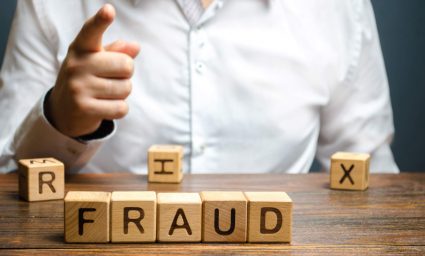 Facing financial difficulties can be a daunting experience, leaving individuals feeling vulnerable and eager to find quick fixes to their problems. The stress of managing monthly bills and obligations can make even the most dubious offers seem appealing. While it's crucial to avoid high-interest payday loans or excessive credit borrowing, even seemingly trustworthy financial assistance offers can conceal hidden dangers. Often, what appears to be a lifeline is actually a carefully crafted scheme by ruthless scammers who are intent on exploiting your desperate situation for their gain.
Facing financial difficulties can be a daunting experience, leaving individuals feeling vulnerable and eager to find quick fixes to their problems. The stress of managing monthly bills and obligations can make even the most dubious offers seem appealing. While it's crucial to avoid high-interest payday loans or excessive credit borrowing, even seemingly trustworthy financial assistance offers can conceal hidden dangers. Often, what appears to be a lifeline is actually a carefully crafted scheme by ruthless scammers who are intent on exploiting your desperate situation for their gain.
Currently, a wide array of scams prey on individuals grappling with financial challenges, making it essential for you to stay alert and informed. A key principle to remember is simple: if an offer seems too good to be true, it likely is. This detailed guide will explore various scams that specifically target those experiencing financial strain, providing you with the essential information needed to differentiate between authentic opportunities and deceitful traps.
Protecting Your Tax Refunds: Understanding Your Rights and Options
There are legitimate methods for claiming tax refunds on various expenses such as work-related tools, uniforms, and mileage. However, these processes often involve working with a tax rebate services firm, which necessitates that you provide them with access to your tax records. It’s vital to recognize that no governmental agency, including HMRC, can accurately assess your entitled refund without your proactive involvement or consultation with a qualified tax professional. Therefore, be cautious when you receive unsolicited messages stating, “HMRC has a tax refund of £261 waiting for you.” These messages frequently present realistic amounts, cleverly avoiding the exaggerated claims typical of more blatant scams, such as the infamous Nigerian Prince schemes. Instead, they may lead you to websites where your sensitive information could be compromised, resulting in identity theft or significant financial loss.
To verify whether such communications are genuine or fraudulent, closely inspect the sender's details. If you receive a text message, check the originating phone number for authenticity. It is wise to avoid replying to such messages and instead contact HMRC directly for confirmation. Remember that HMRC typically communicates via letters or emails sent to your registered address rather than through unsolicited text messages. In addition, you now have the ability to access your online tax account, where you can view notifications and updates directly from HMRC. If you receive an email, scrutinize the sender’s address to ensure it originates from an official HMRC domain. Always refrain from clicking on any links contained in suspicious messages.
How to Identify and Avoid the National Insurance Number Scam
Recent reports, including those from the Daily Express, have highlighted the alarming prevalence of the National Insurance scam, which primarily operates through phone calls. This method is particularly concerning as scammers may contact you on either your landline or mobile device. The scam typically starts with a distressing message claiming that your national insurance number has been compromised. This tactic is designed to instill panic, prompting you to press a button to speak with someone who can supposedly help. However, this often results in you being charged a premium rate for the call while scammers collect your personal information.
To discern whether such a call is legitimate or a scam, remember that reputable organizations would never ask you to press a button to continue a conversation. If you are uncertain, simply hang up and conduct a quick online search for the phone number. A brief investigation can often reveal if the number is linked to known scams, helping you to safeguard your personal information and financial well-being.
Recognizing the DPD or UPS Delivery Scams and Protecting Yourself
Another widespread scam involves receiving unsolicited texts or emails notifying you about a parcel that requires your immediate action. These messages often urge you to click a link to provide personal information, which serves as a glaring warning sign of potential fraud. To protect yourself, scrutinize the source of the email carefully. Scammers frequently utilize distorted or unusual email addresses that do not correspond with legitimate companies. Additionally, review any recent orders you’ve placed with platforms like Amazon or eBay, as these companies typically provide comprehensive tracking information.
It is also crucial to remember that while carriers such as DHL may impose duties on international orders, they will always provide you with specific details about your shipment and its origin. If you receive vague messages about package deliveries without having placed any prior orders, exercise extreme caution. Being informed about personal finance scams is vital to prevent falling victim to such schemes. If you find yourself facing financial struggles that make these scams seem attractive, consider reaching out to us; we may assist you with our debt consolidation loans for bad credit. We are committed to helping you navigate your financial challenges securely and responsibly.
The Article Finance Scams to Watch Out For Was Found On https://limitsofstrategy.com

